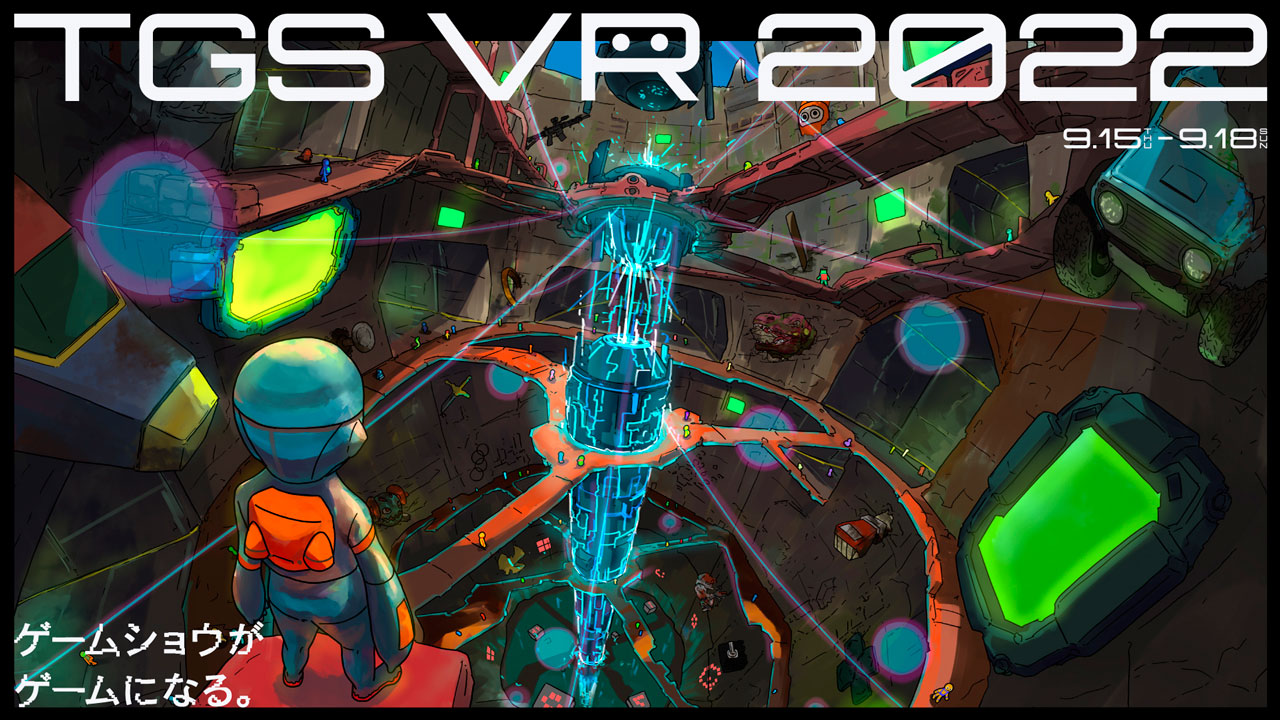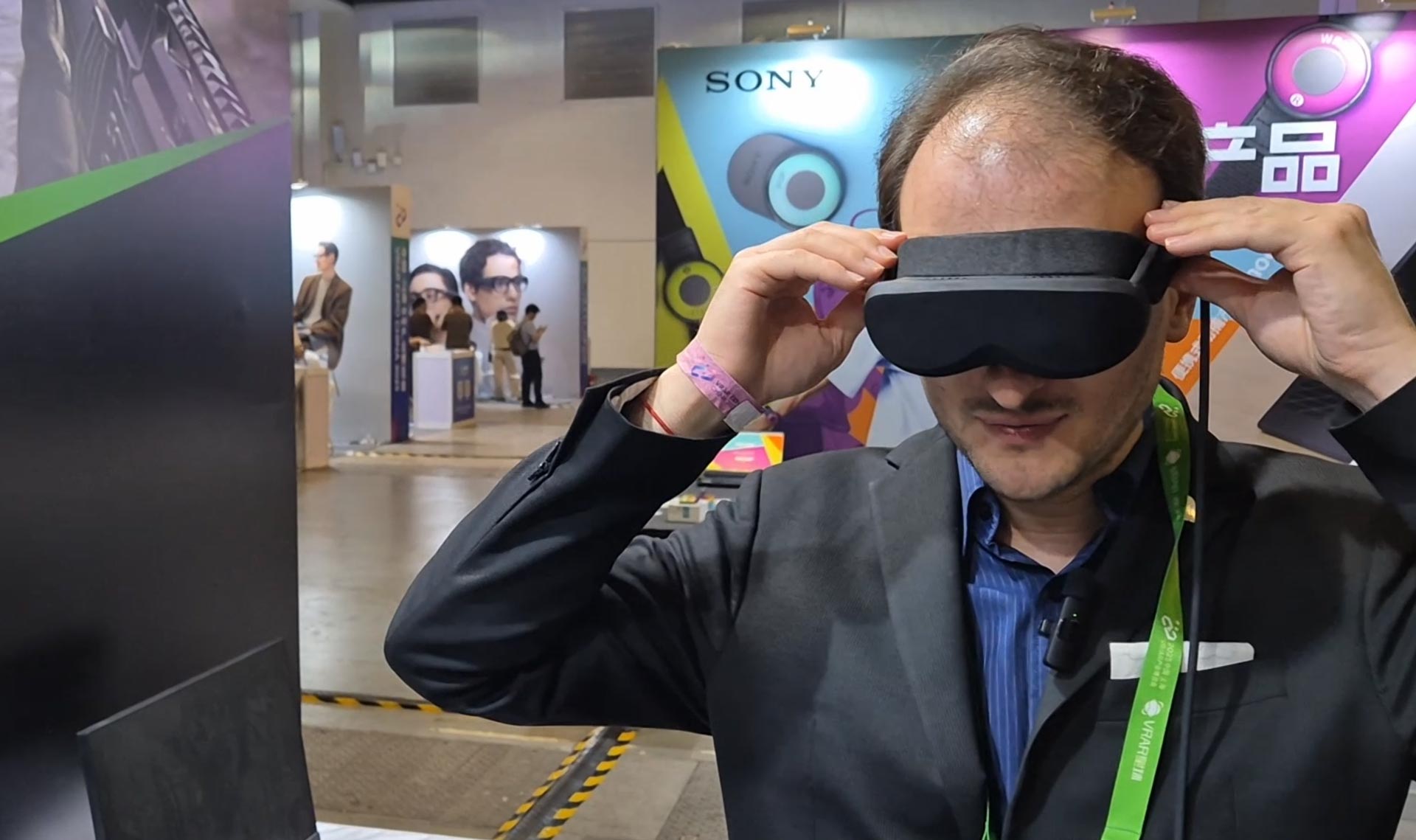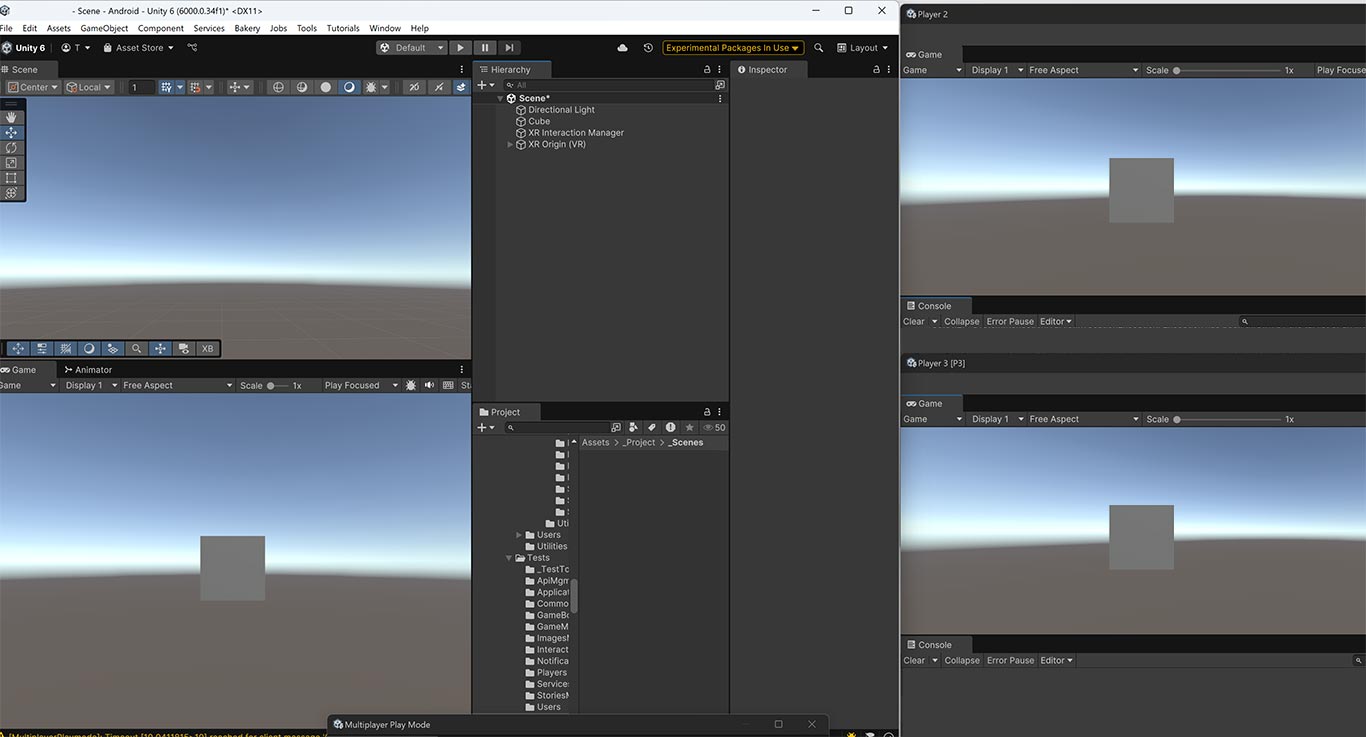Lessons learned from Tokyo Game Show VR 2021 and the evolution to TGSVR2022
Today I am very happy to host on my blog a guest post by ambr, the Japanese company that is hosting these days the TGSVR, which is the VR edition of the Tokyo Game Show. I have talked about TGSVR also last year when I had the pleasure also of interviewing ambr’s Tomoko Ushiro and asking her for more details about her company. I also visited last year’s VR world and found it enjoyable, but I suffered a bit the lack of interaction. This year, ambr is back with the TGSVR 2022, and while developing it, it has applied all the lessons learned from the first edition of last year. Since I love people at ambr, and I think that articles with lessons learned are always very valuable, I have collaborated with them to offer you this post, which details what have been the evolutions between TGSVR 2021 and TGSVR 2022.
Have a nice read, and don’t forget to visit the Tokyo Game Show VR!
ambr, Inc. is the metaverse creative company whose motto is “The World Is a Playground”. Utilizing our metaverse development product called xambr, we are collaborating with worldwide-known companies and brands to create the best virtual experiences. In September 2021, we created TOKYO GAME SHOW VR 2021, the first virtual reality venue for the historical Tokyo Game Show. Then, in February 2022, we planned and developed Magic: The Gathering Virtual Art Exhibition with Wizards of the Coasts LLC, the world-famous creative game company. We also announced in July 2022 that we will develop a new metaverse platform using the equivalent of 1.2 billion yen (around 8.3M USD) from a Series A Round.

In this post, we will share our experience in developing and planning “TOKYO GAME SHOW VR” (hereinafter “TGSVR”), lessons learned from last year, and how we have used them to make it more enjoyable and playable this year.
The Success of TGSVR2021
Tokyo Game Show is one of the world’s biggest game festivals. For the first time in its history, “TOKYO GAME SHOW VR 2021” was held in the VR venue last year. Twenty exhibitors, mainly leading gaming companies from Japan, participated. Under the theme of “connections”, we tried to introduce a new type of virtual and interactive exhibition.
The total number of visitors was 210,566. The average playtime per user was about twenty-seven minutes and about 98 percent of them answered that they wanted to visit it again. Even though it was compatible with both PCs and VR devices, the ratio of VR users exceeded 60 percent. Players enjoyed the immersive feeling unique to the virtual space.
We also received outstanding evaluations from major media companies, with comments such as “This is the first year of VR history” and “This is the future of the exhibition”. Ultimately, we achieved great success by earning over 800 million Japanese yen (around 5.6M USD) worth of media exposure in total advertising conversion value.

The Lessons Learned From TGSVR2021
Despite the success mentioned above, we fumbled in many areas since it was the first VR venue in TGS history. Neither exhibiting companies nor we, the developer, could imagine what the show would be like. Fortunately, we made it happen without major problems, and visitors enjoyed the show more than we anticipated. On the other hand, on the production side, we faced many issues that we wanted to address and regretted not being able to accomplish everything we wanted to have done.
Lack of Contents and Experiences Unique to VR
The biggest challenge of TGSVR2021 was increasing the content and experiences unique to VR that visitors would enjoy. We had unexpected surprises from some exhibitors, who provided us with not only character models but also data of their in-game environment. These exhibition spaces were very popular among visitors. However, most other experiences centered on watching each company’s various promotional videos. We were aware of this issue from the beginning, but since this event was created with the cooperation of every exhibiting company, it was difficult to overcome this problem in the first year.

Even for the character models, it was not as simple as just borrowing the data and installing them in the booths. Due to differences in game engines between us and the exhibitors, slight differences in the shading and lighting in images occurred during the data conversion process. Therefore, we needed to make numerous adjustments to the look during the development and get confirmation from exhibitors before setting them up. Visitors might want to see characters move and talk more, and we felt the same. However, we first needed to overcome technical difficulties and communication issues among the stakeholders.
Lack of Gamification
Another issue we faced was how to make exploring in the game show more fun. This year’s slogan—“The Game Show Becomes a Game”—has been an internal theme in the production team since last year. It is pointless to imitate the on-site venue in the VR setting, so we have been working to incorporate gamification into this event. Unfortunately, the six-month development period of TGSVR 2021 was not long enough to make everything happen. Because of the lack of time, we had to omit some ideas, such as collecting coins and fighting with weapons, from the last event. Whether or not these features are necessary, we had to reconsider gamification this year.
How We Applied the Lessons Learned and Designed the Evolved TGSVR2022
To overcome our biggest issue—to create the “contents and experiences unique to VR”—we asked every exhibiting company to provide us with more data about their games. This would increase data conversion and supervision costs, but we considered them necessary for a better user experience. The apparent advantage of VR is that you can actually visit the scenes and characters that you usually can see only in a game through a 2D screen. However, we still have difficulties moving characters. It is easy to adjust the look development if the character does not move. When it moves, it restricts the adjustments and becomes difficult to reproduce the character’s visuals and brand image of each IP. This will continue to be an issue.
In addition to 3D models, we asked each company to actively exhibit 2D contents this year. Some feel this may not seem like a value unique to VR, but that is not true. 2D images such as unpublished artworks, illustrations, and standing panels of characters become great exhibits that users can enjoy by setting them up in the 3D space. Unlike 3D models that require thorough supervision, 2D images are highly reproducible even when they are installed into the VR world. Therefore, we asked exhibitors to supervise their positioning within the booths, but not for the images themselves. This approach is efficient in enriching the content while reducing the cost.


Virtual Event Game Experience
Regarding “gamification” in TGSVR2022, we, ambr, defined the experiences we present to users as “Virtual Event Game Experience” during the development. This is a new type of experience in which a game-like feel merges into a virtual event.
To add a game-like feel, there is a stage and a story. This time, it begins when the dungeon called “GAME STOPE” which was excavated underneath the Makuhari Messe Event Hall. Users will find out what the “game” is while exploring the dungeon. Unlike other game shows where you mainly enjoy the exhibits, there is a side story to pursue. In addition to this, we focused on designing the “Avatar Customization System” and “Quest System” to enhance the gameplay feel.

Avatar Customization
Last year, the basic design of the avatar was the same for every user: a robot. You could only choose the body color and which T-shirt to wear for the equipment. This year, we incorporated “Character Creation” and made it possible to create 6,400 different types of avatars by choosing a hairstyle, hair color, skin color, and eye shape. You can also select and equip from seventy-four different outfits, which will be the reward of the quests, to the head, body, and foot. Combining all these together, in total, there are more than 63 million designs of avatars to create.

This year, the position of the user is the main character who “explores” the underground world. We thought it is vital for them to be able to project themselves onto the avatars and transform appearances as the story advances. Therefore, we have enhanced the customization features drastically. In addition to the outfits original to this show, we have prepared items related to famous games made in cooperation of exhibitors.


Quest System
Thinking about last year, it was an aimless treasure hunt where you could get T-shirts by watching various promotional videos at companies’ booths. It may have stimulated the desire to complete but did not more than that. This year, we want users to enjoy both promotion videos and the 3D exhibits at each booth. Therefore, we have evolved it into a quest game, where you need to finish multiple tasks to complete the quests. For example, there is a quest where you need to find a specific character model and take a picture of it. We hope this system will encourage users to explore more, take photos, and share on the SNS.
The rewards for these quests are the outfit items previously mentioned. This year, we are emphasizing the users’ enjoyment of wanting items or dressing up rather than having them complete. There are also special quests called “Altar Quests”, by which you will not earn rewards but advance the story to the end.


In TGSVR2022, we believe that we will be able to deliver users an unforgettable “Virtual Event Game Experience” with the enhanced content of exhibitors, upgraded world and story, Avatar Customization, and Quest System.
Overview of TGSVR2022
TGSVR2022 can be played for free with Windows PC alone, Meta Quest 2 alone, or PC VR devices. If you have Windows PC or PC VR devices, please visit the official website and download the zip file. In case you wish to play the app with your Meta Quest 2, simply go to the App Lab page. We wish you enjoy the new and evolved TOKYO GAME SHOW VR!

Overview of TOKYO GAME SHOW VR 2022
Name: TOKYO GAME SHOW VR 2022 (TGSVR2022)
Organizer: Computer Entertainment Supplier’s Association (CESA)
Co-sponsors: Nikkei Business Publications, Inc.; DENTSU INC.
Event period: September 15 (Thursday) 10:00 to September 18 (Sunday) 24:00, 2022, JST
Admission: Free
Participation method: Windows, Meta Quest 2 (App Lab/Link feature), Oculus Rift/Rift S, HTC Vive/Vive Pro series, Valve Index *also supported on Windows PC alone
In-app language: Japanese, English
Official website: https://tgsvr.com/en/
Official Twitter: https://twitter.com/tgsvr_official
List of participating companies (Japanese syllabary order)
Exhibitors
ImaCreate / Cover / CAPCOM / Ministry of the Environment / CharacterBank / Gugenka / KOEI TECMO GAMES / KOJIMA PRODUCTIONS / KONAMI / Survios, Inc. / SQUARE ENIX / SEGA/ATLUS / DYSCHRONIA: Chronos Alternate / VARK / BANDAI NAMCO Entertainment / Pole To Win / Magic: The Gathering / Metaani
VR Sponsor
ZONe ENERGY / Boat Race Promotion Association / UCC
VR Apparel Sponsor
Ralph Lauren
ambr, Inc. is actively looking for partners and members interested in co-creating advanced virtual experiences with us. Please refer to the URL below for more information.
Reference URL
Corporate website: https://ambr.co.jp/en/
Official Twitter: https://twitter.com/ambr_community
Inquiries about this post
Please contact us at the following URL or email address.
URL: https://forms.gle/Ubd7MGrFACmyKvU37email: [email protected]
(Header image by ambr, Inc)
Disclaimer: this blog contains advertisement and affiliate links to sustain itself. If you click on an affiliate link, I'll be very happy because I'll earn a small commission on your purchase. You can find my boring full disclosure here.



